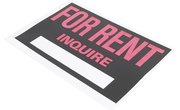
The basis of a home or other real estate you own is how much you have invested in the property at the time you sell it, including what you paid for it and any capital improvements you have made. The higher a property's basis, the less profit you will make, which reduces the amount of taxes you will owe. When a property undergoes changes during the time you own it, you need to make adjustments to the original basis.
Calculating Cost Basis
The cost basis of real estate is the price you paid to buy the property. Add to the down payment and amount of the mortgage loan, the cost of fees and expenses you paid to close the deal. You can find settlement costs such as title insurance, recording fees, transfer taxes and legal fees on the closing statement you receive. If you inherit property, the starting basis is the property's fair market value at the time of the owner's death, not what the owner paid for it. Your basis in real property you receive as a gift is the donor's adjusted basis at the time.
Adjusting for Increases in Basis
When you make improvements that add value to a property or extends its useful life, you must increase its basis. If your city or municipality makes improvements that increase a home's value, add the assessment to the property's basis. Upgrades, room additions and major renovations all increase the value of a home, although you are not allowed to include the cost of your own labor. The cost to repair property that suffers damage caused by fire, flood or other casualty, tax credits for home energy improvements after 2005, and the cost to extend utility service lines to a property increase its basis as well.
Adjusting for Decreases in Basis
Certain items reduce a property's starting basis. For example, depreciation deductions you take for using part of your primary residence for business or rental purposes decrease the basis. You must also subtract from the original cost of the property easement payments or payments from insurance companies as reimbursement for a casualty or theft loss. A deferred gain from the sale of a previous home or deductions you take for a casualty loss not covered by insurance also reduce a property's basis.
Keeping Records Relating to Basis
Keep records, such as receipts and canceled checks, which support the expenses you use in calculating the cost basis of a property. Refer to the settlement statement to calculate the original basis if you bought the home. Closing costs you may not use to calculate a property's starting basis include loan origination fees, appraisal fees, casualty insurance and mortgage insurance premiums, and fees associated with refinancing a mortgage. You should keep all documents that relate to calculating both the original and adjusted basis for as long as you own the property.
References
- Nolo: Determining Your Home's Tax Basis
- IRS.gov: Basis of Property
- IRS. "Publication 551 (Rev. December 2018) Cat. No. 15094C Basis of Assets." Page 2. Accessed June 23, 2020.
- IRS. "Publication 551 (Rev. December 2018) Cat. No. 15094C Basis of Assets." Page 5. Accessed June 23, 2020.
- IRS. "Topic No. 701 Sale of Your Home." Accessed June 23, 2020.
- IRS. "Publication 544 Cat. No. 15074K Sales and Other Dispositions of Assets." Page 27. Accessed June 23, 2020.
- IRS. "Publication 551 (Rev. December 2018) Cat. No. 15094C Basis of Assets," Page 2-3. Accessed June 23, 2020.
- IRS. "Publication 551 (Rev. December 2018) Cat. No. 15094C Basis of Assets." Page 4-5. Accessed June 23, 2020.
- IRS. "Publication 946 Cat. No. 13081F How to Depreciate Property." Accessed June 23, 2020.
Writer Bio
Amber Keefer has more than 25 years of experience working in the fields of human services and health care administration. Writing professionally since 1997, she has written articles covering business and finance, health, fitness, parenting and senior living issues for both print and online publications. Keefer holds a B.A. from Bloomsburg University of Pennsylvania and an M.B.A. in health care management from Baker College.

